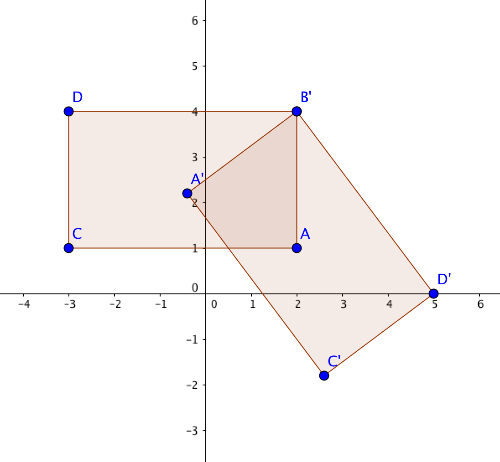Reflection
Reflection over the y-axis (x = 0)
What are the effects of a reflection over the y-axis on the points, segments and angle measurements?
Reflection over the x-axis (y = 0)
What are the effects of a reflection over the x-axis on the points, segments and angle measurements?
Reflection over a vertical line
What are the effects of a reflection over any vertical line on the points, segments and angle measurements?
Reflection over a horizontal line
What are the effects of a reflection over any horizontal line on the points, segments and angle measurements?
What are the effects of a reflection over the line y = x on the points, segments and angle measurements?
Other Relationships within Reflections
Summarize the relationships you observed between these new lines and the line of reflection.

What is the equation of the line of symmetry used to create the image above?
Can you do it on your own?
Reflection Rules
So far you have explored three different scenarios. You should have noticed the following patterns or rules: If a figure is reflected in the y-axis, then all of the points will move according to the rule . If a figure is reflected in the x-axis, then all of the points will move according to the rule . If a figure is reflected in the line y = x , the all of the points will move according to the rule . What do you think is the rule when figures are reflected in the line y=-x?
Challenge 1
Observations of the effects of a composition of two reflections.
Challenge 2
Challenge 2 Summary
What did you observation about Glide Reflections?